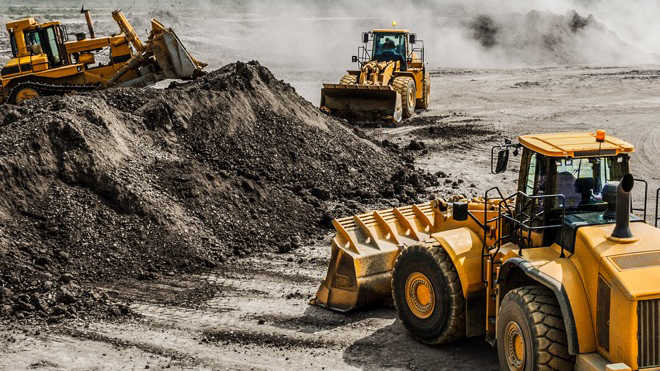Heavy Equipment Rental: High-Quality Equipment for Lease
Wiki Article
Renting Out Vs. Purchasing Building Equipment: Making the Right Option for Your Task
When beginning on a building and construction task, one of the critical choices that forecast stakeholders and supervisors encounter is whether to get or lease construction tools. The decision hinges on different factors such as cost considerations, job duration, tools upkeep, flexibility, danger, and scalability monitoring.Price Considerations
When evaluating the monetary element of purchasing versus renting out building and construction devices, the ahead of time costs and long-term expenses have to be meticulously thought about. Renting out equipment commonly calls for lower initial payments contrasted to purchasing, making it an attractive option for temporary projects or professionals with spending plan restrictions. Leasing gets rid of the requirement for huge resources expenses and decreases the economic danger connected with devices ownership, such as maintenance and devaluation prices. Nevertheless, in the future, continually renting out devices can accumulate higher costs than acquiring, specifically for extended jobs.On the other hand, acquiring building and construction equipment includes higher in advance prices but can lead to long-lasting savings, especially for long-lasting jobs or frequent customers. Owning equipment gives flexibility, comfort, and the possibility for resale value once the task is finished. In addition, possessing devices enables modification and familiarity with details equipment, potentially enhancing effectiveness and efficiency on-site. Eventually, the choice in between buying and leasing building and construction equipment rests on the job's period, regularity of usage, budget considerations, and lasting financial goals.
Task Period

Alternatively, for lasting jobs or recurring construction work, buying tools might be the much more economical option. Buying tools can lead to cost financial savings in the lengthy run, particularly if the tools will certainly be regularly utilized. In addition, owning tools gives a sense of control over its accessibility and permits for customization to fit certain job needs.

Equipment Upkeep
Provided the vital duty job period plays in identifying one of the most economical approach in between leasing and acquiring building and construction equipment, the focus currently shifts in the direction of analyzing the necessary element of tools upkeep. Proper maintenance is essential for making certain the optimal efficiency and longevity of construction equipment. Renting out tools often features the advantage of having well-kept machinery provided by the rental business. This can ease the problem of upkeep tasks from the job owner or contractor, conserving time and initiative. On the other hand, possessing devices requires an aggressive approach to upkeep to avoid breakdowns, guarantee safety and security, and extend the devices's life-span. Routine examinations, maintenance, and prompt repairs are needed to keep owned and operated equipment in top working problem. Consider upkeep prices when choosing in between purchasing and renting, as go to this website neglecting maintenance can cause costly foundation equipment repair work, downtime, and project hold-ups. Eventually, a well-maintained building tools fleet, whether rented or had, is important for the effective and effective conclusion of construction jobs.Flexibility and Scalability
In the realm of building and construction tools administration, the facet of adaptability and scalability holds substantial relevance for task performance and source utilization. Deciding to lease construction tools provides a high degree of versatility as it enables for the fast adjustment of equipment kinds and quantities based on the advancing requirements of a task.Additionally, scalability, one more crucial variable, is inherently linked to adaptability. Renting out building and construction devices offers the benefit of quickly scaling operations up or down as job demands vary. Contractors can rapidly exchange or add equipment to match the project's changing demands without the constraints of owning assets that might become underutilized or outdated. This capability to range resources efficiently can cause price savings and improved task timelines, making renting a favorable alternative for tasks requiring versatility and responsive source allotment.
Threat Administration
Effective risk management in building and construction tools procedures is critical to guaranteeing task success and mitigating prospective financial losses. Construction projects naturally involve numerous risks, such as equipment breakdowns, accidents, and job hold-ups, which can significantly influence the job timeline and spending plan. By thoroughly taking into consideration the risks connected with owning or renting out building equipment, task supervisors can make educated decisions to decrease these possible risks.Renting out building and construction tools can provide a degree of risk mitigation by transferring the responsibility of upkeep and repairs to the rental business. This can decrease the monetary burden on the project owner in instance of unexpected equipment failings (equipment rental company). In addition, leasing offers the flexibility to accessibility customized devices for specific job stages, decreasing the threat of having underutilized equipment
On the various other hand, having building equipment supplies a sense of control over its use and upkeep. Nonetheless, this additionally suggests birthing the complete duty for repairs, maintenance prices, and depreciation, increasing the financial risks connected with tools ownership. Careful threat evaluation and consideration of elements such as task duration, equipment application, and maintenance needs are crucial in figuring out the most suitable choice for effective risk monitoring in building and construction jobs.
Verdict
Finally, when making a decision between acquiring and renting construction equipment, it is vital to consider price, task period, tools upkeep, scalability, danger, and flexibility management. Each aspect plays a vital function in establishing the most ideal option for the task handy. By carefully reviewing these aspects, task supervisors can make an informed choice that straightens with their budget, timeline, and general task goals.
Report this wiki page